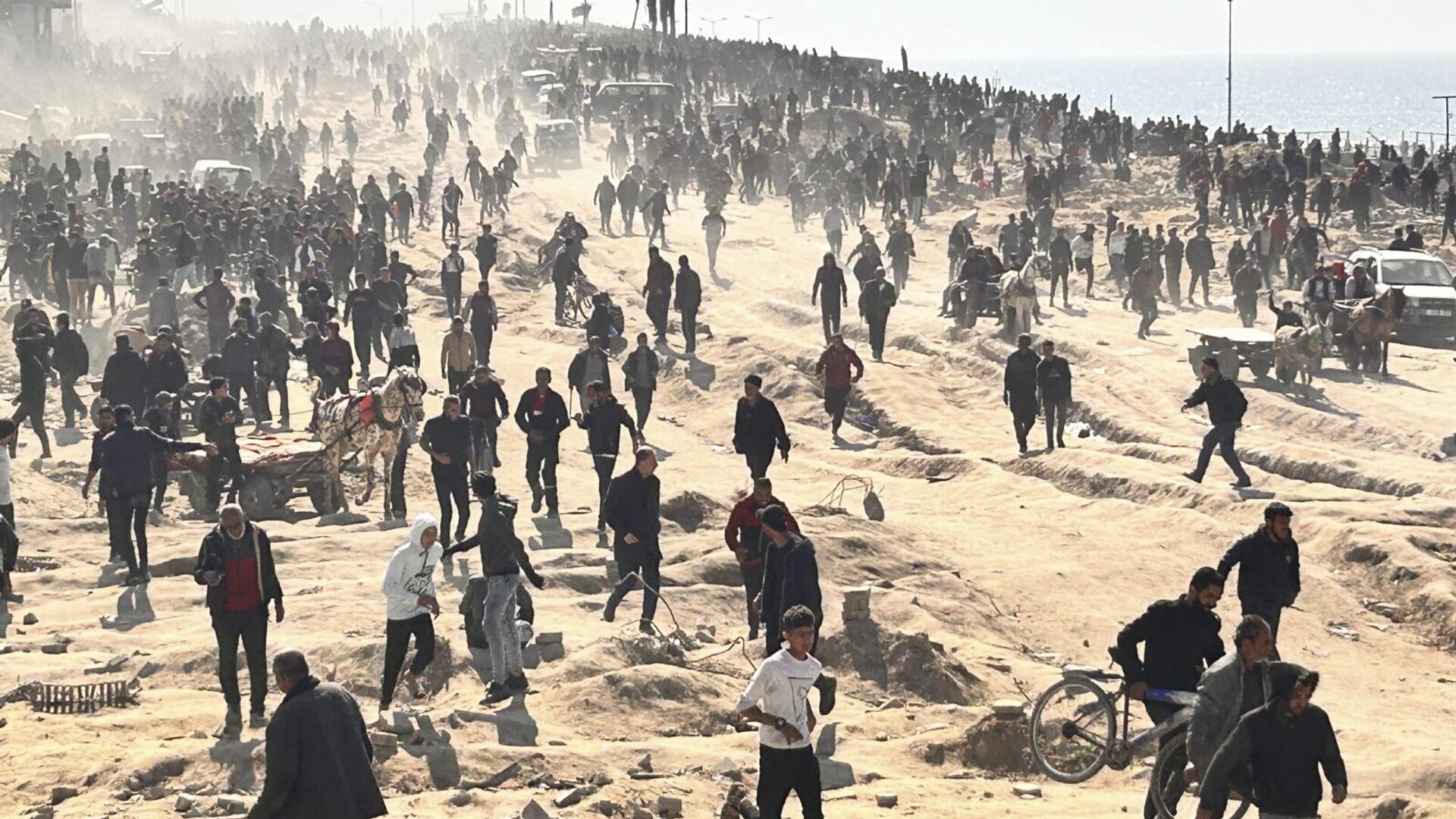Israel Rejects Accusations of Using Hunger as Weapon in Gaza, Mission to UN Says

© AP Photo / Mahmoud Essa
Subscribe
MOSCOW (Sputnik) - Israel rejects accusations of using starvation as a weapon in the Gaza Strip, as 9,200 trucks carrying over 195,000 tonnes of humanitarian aid have entered the Palestinian enclave since October 7, a legal adviser at the Israeli mission to the UN, Yeela Cytrin, said.
On Tuesday, UN special rapporteurs said Israel was not complying with provisional measures of the International Court of Justice by attacking humanitarian convoys and shooting at civilians seeking humanitarian assistance. On Wednesday, Palestinian Foreign Minister Riyad al-Maliki said that about half a million people in the besieged Palestinian enclave were facing hunger.
"Israel utterly rejects allegations that it is using starvation as a tool of war as was viciously repeated here today. Reiterating this falsehood does not make it true. We also reject all claims that Israel targets humanitarian aid or those receiving such aid. Once again, this is a lie. We do, however, recognize that the Palestinian people in Gaza are in need of humanitarian assistance, and we are constantly and ongoingly addressing these needs," Cytrin told the 55th session of the UN Human Rights Council in Geneva, commenting on UN Special Rapporteur on the Right to Food Michael Fakhri's remarks about the food situation in the enclave.
Israel does not limit the volume of aid that is being transported to Gaza and is "working around the clock" together with humanitarian organizations and the international community to increase the flow of aid and distribute it more efficiently inside Gaza, the Israeli representative said.
"Since the beginning of the conflict, 195,000 tonnes of food has entered Gaza in the form of 9,200 trucks. Yesterday, 257 trucks entered Gaza, carrying 3,940 tonnes of food. Over the last two weeks alone, an average of 240 trucks have entered Gaza every day," Cytrin also said.
In addition, Israel, together with its partners, such as Jordan, Egypt, France, the US and the United Arab Emirates, is facilitating airdrops into Gaza, with over 550 packages carrying humanitarian aid airdropped over the past week and more to follow in the coming days, the Israeli representative said. It is also working with the partners to "repair and open bakeries in Gaza, which are currently providing over 2.5 million breads a day for the local population," she added.
"Israel will continue to do what it can to get more aid into Gaza, and we will continue to work with all partners to do so. Israel has no intention of harming or starving the Palestinian people. Our only intentions are to bring our hostages home and to dismantle the genocidal terrorist organization Hamas that has declared and demonstrated its intention to eliminate Israel and its people," Cytrin said.
Last week, UN High Commissioner for Human Rights Volker Tuerk said at the 55th session of the UN Human Rights Council that all Gaza citizens were at imminent risk of famine and almost all of them were drinking contaminated water. World Health Organization chief Tedros Adhanom Ghebreyesus said earlier this month that 10 children had died of starvation at the Kamal Adwan pediatric hospital in northern Gaza.
In mid-February, the UN Office for the Coordination of Humanitarian Affairs said that Israel had banned 51% of the planned humanitarian supplies to the population of the northern Gaza Strip and 25% of those planned for the areas requiring coordination south of Wadi Gaza since January 1.

